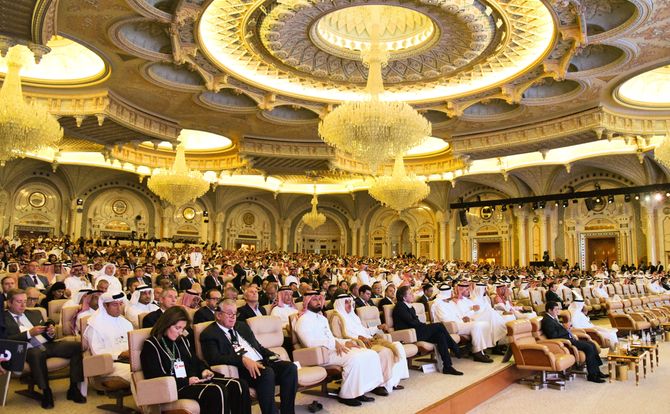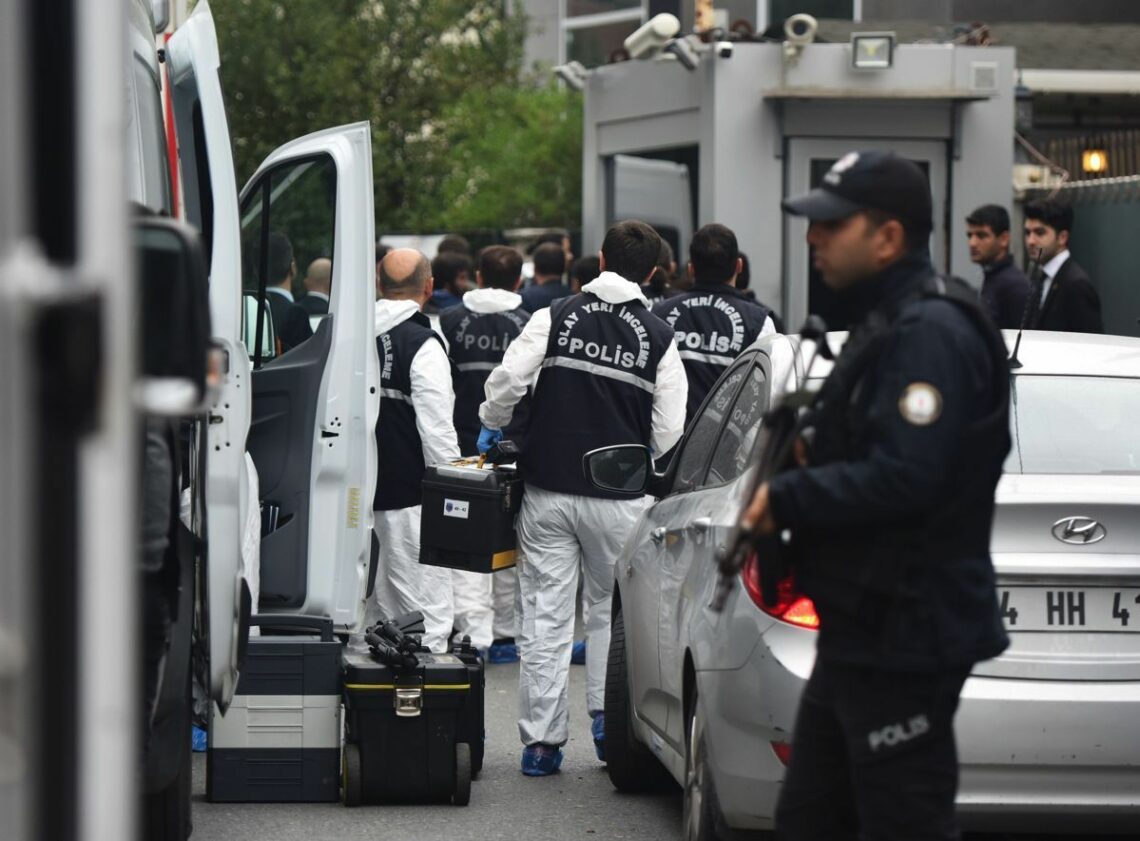Saudi Arabia’s key role in the Middle East
Journalist Jamal Khashoggi’s murder has upset the Middle East’s geopolitical balance in two dimensions: the three-sided rivalry between Iran, Saudi Arabia and Turkey, and the conflict between the Muslim Brotherhood and stable monarchies in the region.

In a nutshell
- Saudi Arabia’s push for structural reforms has reached a very delicate stage
- Regional rivals and some disgruntled Saudi elites are trying to derail the transition
- The kingdom must improve governance, but Western sanctions will make things worse
Over the past 10 years, the axis of conflict in the Middle East has shifted in gradual stages from the Israeli-Palestinian struggle to rivalry between three regional powers – Turkey, Saudi Arabia and Iran.
The so-called Arab Spring ultimately led to catastrophic civil wars in Libya, Syria and Yemen, which became proxy wars between regional powers, but also involved the United States and Russia, as all strove to expand their spheres of influence. Among regional players, Egypt lost its central role as it became absorbed in domestic problems. Turkey, on the other hand, shed its longtime policy of noninterference and began to expand its political and military presence.
Just as significant as this new power configuration is an emerging rift between followers of the Muslim Brotherhood and the region’s stable monarchies.
In both dimensions, important changes are taking place.
On the geopolitical chessboard, Iran is pushing to widen its influence southward to Yemen and the Red Sea, as well as east through Iraq and Syria to Lebanon and the Mediterranean. It does so by supporting insurgents, terrorist activities and friendly governments in Damascus and Baghdad. Tehran’s expansion is unacceptable to Saudi Arabia, for which it constitutes a direct threat, explaining Riyadh’s forceful intervention in Yemen.
The Muslim Brotherhood is a strong pan-Arab movement that strives for majority rule under Islamic law. It has proved largely incompatible with monarchical rule, except for Qatar, which has consistently supported the Brotherhood. An important avenue for this backing is the Qatar-based news channel Al Jazeera, which is regarded in Saudi Arabia and the United Arab Emirates as a destabilizing force.
Structural reform can only come from above in Saudi Arabia, but it risks triggering uncontrollable reactions.
Turkey is another promoter of the Muslim Brotherhood, especially in Egypt, where the movement has been overcome by President Abdel Fatah El-Sisi. Mr. Sisi’s government won early and strong financial backing from Saudi Arabia.
Delicate process
The Saudi kingdom has meanwhile charted a reform course under Crown Prince Mohammed bin Salman (widely known as MbS), the son of King Salman. As is often the case, deep structural reform can only come from above, but it is an extremely delicate process that risks triggering uncontrollable reactions from various quarters. These could eventually lead to chaos and a takeover by a radical group, as happened in Iran in 1979.
To prevent such a turn of events, King Salman and the crown prince moved to curb the role of the Saudi oligarchy, including members of the royal family. Senior members of the kingdom’s political and financial elites were locked up at the Hotel Ritz in Riyadh, with many forced to surrender large chunks of their fortunes. This did not make MbS popular in some highly placed circles, which were especially well-connected in the U.S. and Europe. Many of these Western-educated elites were unhappy about losing power to MbS, a homegrown politician much better grounded in local society.
Even so, the Saudis do not lack for talented officials and administrators. The kingdom possesses the human capital needed to execute the difficult political, economic and social transition envisaged by King Salman and the crown prince. As with most Middle Eastern countries, Saudi Arabia’s demographic situation alone demands energetic reforms. Only sweeping changes will make the country fit to live in for a very young, rapidly growing population.
Systemic shock
Then came the brutal murder of Jamal Khashoggi at the Saudi embassy in Istanbul. Khashoggi belonged to the Saudi elite and was once close to the royal family. In recent years, he had gravitated toward the Muslim Brotherhood and become increasingly critical of MbS. Finally, he emigrated to the U.S. While it is still unclear what exactly happened in Istanbul, it seems that Khashoggi’s murder was engineered by members of Saudi intelligence.
When this connection was belatedly acknowledged, Saudi society was shocked and upset. A number of senior officials in Riyadh came under suspicion and were taken into custody. The case is now being investigated in collaboration with Turkey.
Apparently, Khashoggi’s behavior and criticism of the Saudi leadership became an intolerable annoyance to several hotheads who had established themselves in the intelligence services, close to the crown prince’s inner circle. Ironically, it is believed that the promotion of such unscrupulous men to positions of power was furthered by measures considered necessary to curb the Saudi oligarchy and advance reforms.

Whatever its motivation, the Khashoggi murder unleashed anti-Saudi sentiment in the West and Turkey. It also brought Saudi Arabia’s military intervention in Yemen into the spotlight. While the war has been brutal and the effect of Saudi air strikes on the Yemeni civilian population devastating, it should be remembered that the rebellion was fomented from Iran to destabilize Saudi Arabia.
At the Future Investment Initiative summit in Riyadh on October 23, Lubna Olayan, one of Saudi Arabia’s most prominent businesswomen, made a highly moving statement on the Khashoggi case. The venue was a prominent one, since the conference was one of the flagship events for economic development in the Middle East, intended to promote MbS’s “Vision 2030” strategy to diversify the Saudi economy. She forcefully condemned the killing and deplored what it had done to her country. “The terrible acts reported in recent weeks are alien to our culture and DNA,” she said.
The crown prince, who also spoke at the summit, openly condemned the murders in similar fashion. King Salman has already decided to shake up the intelligence service. MbS told investors that he remains committed to modernization, economic development and peaceful relations in the region, but that he will continue to defend the Middle East against Iranian subversion. Those comments suggest that the war in Yemen will continue.
Western decision
Turkey is understandably indignant at a crime committed on its soil. This anger, along with some sympathy toward the Muslim Brotherhood, can be felt strongly in recent speeches by President Recep Tayyip Erdogan. Significantly, however, the Turkish leader refrained from naming names while castigating the Saudi leadership. Mr. Erdogan clearly exempted King Salman from his criticism and made no personal attacks on the crown prince.
The U.S. is considering sanctions against Saudi Arabia, while some member countries of the European Union and the European Parliament are already calling for them. This could be regarded as hypocritical on Europe’s part, since it has resisted joining American sanctions against Iran, an open sponsor of terrorism and subversion in the region and elsewhere.
With Riyadh now seemingly determined to punish the perpetrators, the West has a decision to make.
With Riyadh now seemingly determined to punish the authors of the crime, the West has a decision to make. Will it let the Saudi monarchy deal with the problem, or will it seek to disrupt the kingdom by sanctions and thus support a takeover by the Muslim Brotherhood, which could easily bring an aggressive fundamentalist regime to power? If Saudi Arabia lapses into internal turmoil, the main beneficiary will be Iran – or more specifically, the hardliners who rule the country.
The crisis is already forcing Saudi Arabia to clean house in key institutions, especially the security services. But any expectation that peace and prosperity can be achieved by replacing MbS with another member of the royal family – more Western-educated, but less rooted in traditional Saudi society – can only be considered naive.
High gravity
What cannot be disputed is Saudi Arabia’s crucial role in the Middle East’s political balance. The kingdom’s leadership has made its peace with the fact that Israel will not disappear and that it has a right to exist. This mental accommodation, which has also been made by Arab countries like Egypt, Jordan and Oman, could ultimately pave the way for a solution to the Israeli-Palestinian conflict.
As the protector of Mecca and Medina, Islam’s holiest sites, Saudi Arabia holds a central position in the Islamic world. One of its weightiest responsibilities is to protect these cities from seizure by radical groups or fundamentalist, predatory states.
On the global oil market, Saudi Arabia continues to be a vital swing producer. The kingdom’s petroleum-based economy powers the whole Arabian Peninsula, and its Vision 2030 strategy is the first serious plan to lay the groundwork for regional prosperity in a diversified, post-oil economy.
These stakes reveal the gravity of the current Saudi crisis. The disruptive shock of the Khashoggi murder, under the most likely positive scenario, could be used by the Saudi leadership, especially King Salman and MbS, to improve governance in the kingdom while bringing those responsible for the crime to justice. If this opportunity is seized, it will only advance Saudi plans for a comprehensive social, political and economic transition.
A demonstration of Riyadh’s bona fides would eliminate the need for sanctions and preserve a close alliance with the U.S.
As a powerful demonstration of Riyadh’s bona fides, such steps would also eliminate the need for U.S. sanctions and preserve the close alliance with Washington – so vital in curbing Iran’s regional expansion. Strong containment of Iran is a necessary precondition for de-escalating the war in Yemen. In the meantime, the Saudi military must find a way to minimize civilian casualties while allowing humanitarian aid to get through to the starving population.
A less probable and more damaging scenario would see more international pressure applied to the kingdom, forcing King Salman to alter the line of succession and depose MbS. Such a public humiliation would undermine the Saudi political leadership, bringing the transition process to a halt or – in the worst case – allowing radical groups to take power. If that happens, the Middle East will be in for another protracted period of war, horror and despair.








